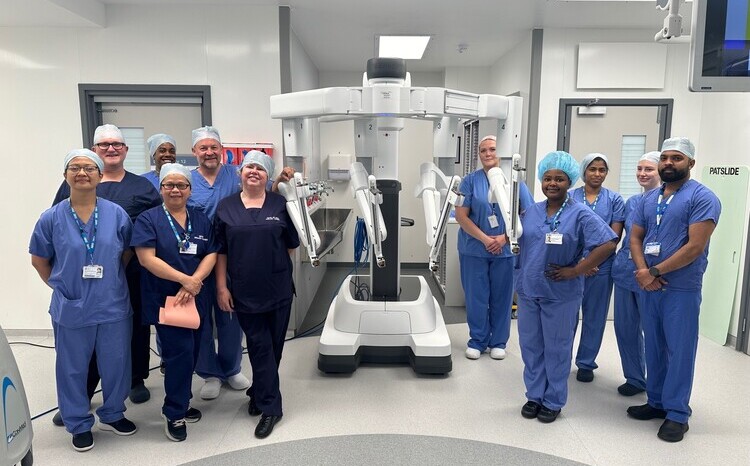Sheffield Teaching Hospitals uses AI to predict kidney failure
- 1 March 2024

Sheffield Teaching Hospitals NHS Foundation Trust is using artificial intelligent technology that could predict kidney failure six times faster than human expert analysts.
The software has been in use at Sheffield Teaching Hospitals’ 3D lab since 2022, where the team believes it has the potential to be used in kidney clinics worldwide to automate kidney volume measurements to predict when kidney failure is going to happen.
The AI was developed from an algorithm trained by Principal Scientist Jonathan Taylor, who is based at Sheffield Teaching Hospitals, and tested on hundreds of kidney MRI scans from a previous European-wide research project.
The tool was developed with the support of clinical scientists and MRI radiographers at the trust, who worked with specialist kidney doctors across Europe as part of the CYSTic research project.
It delivers accurate and speedy analysis of total kidney volume, a measurement that is used to assess future kidney lifespan in patients with autosomal dominant polycystic kidney disease, a condition characterised by fluid-filled sacs in the kidneys.
The conventional monitoring would involve analysts working through 50-60 slices – 2D segments of MRI scans – and tracing around the edge of each kidney on a computer screen. The process takes around an hour, per patient.
With the tool being deployed by Sheffield Teaching Hospitals, the AI can perform the same task in less than a minute – saving significant amounts of staff time.
Professor Albert Ong, consultant nephrologist and clinical lead for genetics at Sheffield Teaching Hospitals, said: “Our AI tool performed as well as the human expert analysts and did the job approximately six times faster.
“Our radiographer colleague Richard Thomas manually traced round the kidneys in all images from a previous European research study. We then fed this collection of images and kidney tracings to an AI algorithm until it had learned to do the tracing process itself to a high standard.”
He added: “This tool will enable kidney clinics worldwide to measure kidney volume quickly and accurately. It will make the measurement of kidney volume possible at clinics where there is a lack of specialist expertise.”




